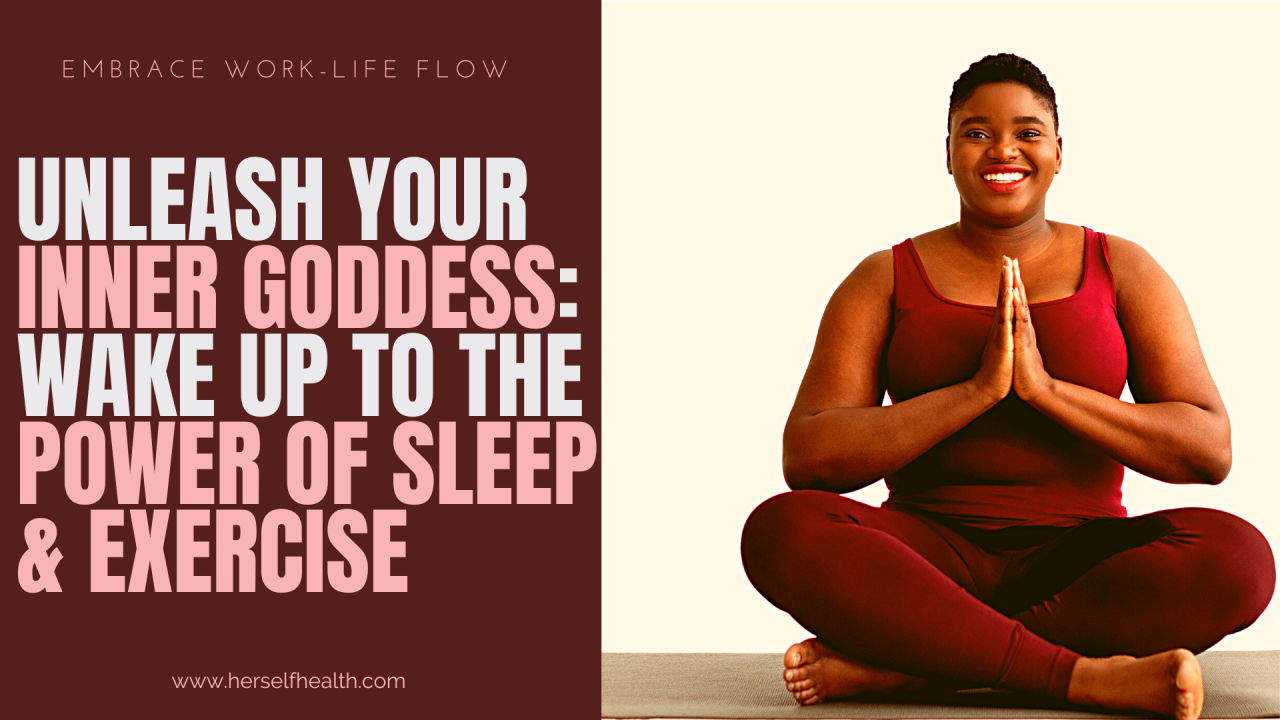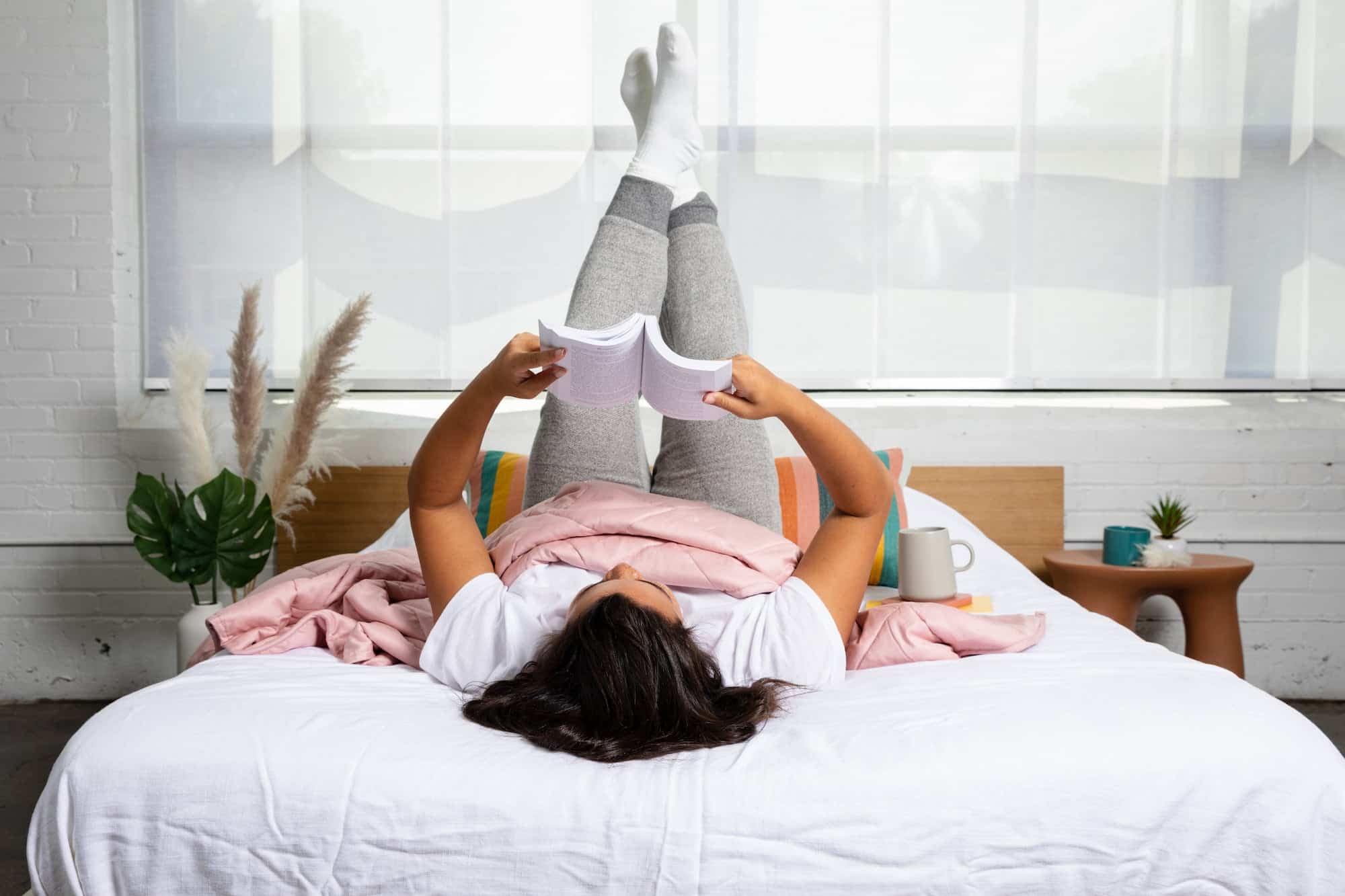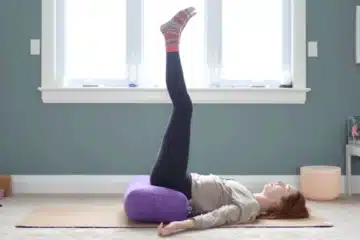Embrace yoga for better sleep and nighttime relaxation by incorporating gentle poses and deep breathing exercises to calm the mind and body. Yoga can help alleviate stress, promote relaxation, and improve sleep quality, making it an effective natural remedy for insomnia and sleep difficulties.
In today’s fast-paced world, many individuals struggle to unwind and find restful sleep. With the increasing reliance on technology, it’s common for people to find it challenging to disconnect and calm the mind before bedtime. This constant stimulation can lead to sleep disturbances and impact overall well-being.
Fortunately, yoga offers a holistic approach to aid in achieving better sleep and promoting nighttime relaxation. By incorporating yoga into your bedtime routine, you can experience the benefits of improved sleep quality and a rejuvenated sense of well-being.
The Impact Of Poor Sleep On Overall Wellbeing
Discover the powerful impact of poor sleep on overall wellbeing. Embrace the benefits of yoga for better sleep and nighttime relaxation with our insightful article on the importance of sweet dreams.
Quality sleep is essential for maintaining a healthy body and mind. However, the modern lifestyle often leaves us deprived of this crucial rest. The consequences of poor sleep reach far beyond mere tiredness and can have a significant impact on our overall wellbeing. In this article, we will explore two key areas affected by inadequate sleep: increased stress levels and impaired cognitive function.
Increased Stress Levels
Lack of sleep can contribute to heightened stress levels. Sleep deprivation disrupts the delicate balance of hormones in our bodies, leading to an increase in the stress hormone, cortisol. When our cortisol levels are constantly elevated due to poor sleep, we may experience heightened anxiety, irritability, and difficulty coping with everyday stressors. This can have a negative impact on our mental and emotional wellbeing, as well as our relationships and productivity.
Impaired Cognitive Function
Inadequate sleep can also impair our cognitive function, affecting our ability to think clearly, concentrate, and make decisions. When we don’t get enough rest, our brain’s ability to process information efficiently is compromised. This can lead to difficulties with memory retention, problem-solving, and learning new skills. Additionally, lack of sleep can diminish our creativity and reduce our overall productivity levels, making it harder to perform well at work or school.
In conclusion, the impact of poor sleep on overall wellbeing should not be underestimated. The consequences of inadequate rest go beyond feeling groggy and can have a significant negative effect on our stress levels and cognitive function. It is crucial to prioritize sleep and embrace practices such as yoga to promote better sleep and nighttime relaxation. By making sleep a priority, we can improve our overall wellbeing and lead happier, more balanced lives.
Understanding Yoga As A Sleep Aid
Discover the power of yoga for achieving restful sleep and ultimate relaxation. Find out how incorporating yoga into your nighttime routine can help you achieve sweet dreams and wake up refreshed every morning.
Understanding Yoga as a Sleep Aid Connecting Mind and Body Yoga is not just a physical exercise; it also involves mental and spiritual practices. Through breathing techniques and mindfulness, yoga can help calm the mind, reduce stress, and prepare the body for a restful night’s sleep. Relaxation Techniques Yoga incorporates various relaxation techniques such as gentle stretching, deep breathing, and meditative practices that can help promote relaxation and induce a state of calm before bedtime. These practices can help alleviate tension in the body and quiet the mind, creating the ideal conditions for a good night’s sleep.
Yoga Poses For Better Sleep
Yoga poses can be a powerful tool in improving the quality of your sleep. Incorporating specific yoga poses into your bedtime routine can help in relaxing the body and calming the mind, making it easier to drift off into a peaceful slumber. Here are three yoga poses that are renowned for promoting better sleep and nighttime relaxation:
Child’s Pose
Child’s Pose, also known as Balasana, is a gentle resting pose that helps to quiet the mind and relieve tension in the body. To perform this pose, kneel on the ground, sit back on your heels, and then slowly lower your forehead to the floor in front of your knees. Extend your arms out in front of you or rest them by your sides. This soothing posture can help to release any built-up stress and prepare the body for a restful sleep.
Legs-up-the-wall Pose
Legs-Up-The-Wall Pose, or Viparita Karani, is a restorative yoga pose that can help to alleviate insomnia and improve overall sleep quality. To practice this pose, lie on your back and extend your legs up a wall, keeping your hips close to the wall. This gentle inversion allows for relaxation and can reduce anxiety while promoting a sense of calm before bedtime.
Corpse Pose
Corpse Pose, or Savasana, is a deeply relaxing posture that is often practiced at the end of a yoga session or before bedtime. To achieve this pose, simply lie on your back with your arms and legs comfortably spread apart. Close your eyes and focus on deep, rhythmic breathing. This meditative posture can help to quiet the mind, release physical tension, and prepare the body for a peaceful night’s rest.

Credit: www.amazon.com
Creating A Bedtime Yoga Routine
Enhance your sleep and relaxation with a soothing bedtime yoga routine. By incorporating gentle stretches and calming breathing exercises, you can prime your body and mind for a restful night’s sleep. Embrace the practice of bedtime yoga to promote sweet dreams and a sense of nighttime tranquility.
Creating a Bedtime Yoga Routine: Setting the Right Environment To truly embrace the benefits of bedtime yoga, it’s crucial to create a relaxing environment that promotes restful sleep. Consider dimming the lights, playing calming music, and using aromatherapy diffusers to fill your space with soothing scents like lavender or chamomile.
Investing in a comfortable yoga mat and using a pillow or bolster for support can enhance your practice and maximize relaxation. Remember, your environment plays a vital role in setting the stage for a peaceful night’s sleep.
Breathing Exercises One of the key components of a bedtime yoga routine is focusing on your breath. Practice deep breathing exercises to calm the mind and release tension from the body.
Breathe in slowly through the nose, feeling the breath fill your lungs, and then exhale gently through the mouth, releasing any stress or worries. As you deepen your breath, you’ll activate the body’s relaxation response, signaling to your brain that it’s time for rest.
Incorporating simple breathing exercises into your nightly routine can help you unwind and prepare for a restorative sleep. Creating a Bedtime Yoga Routine Now, let’s discuss how you can create your own bedtime yoga routine.
Begin by setting the right environment, transforming your bedroom into a tranquil space conducive to relaxation. Dim the lights, play soothing music, and incorporate the use of essential oils to engage your senses and promote a peaceful atmosphere. Next, focus on your breath.
Engage in deep breathing exercises, inhaling slowly through the nose and exhaling gently through the mouth. This mindful breathwork will help quiet the mind, release tension, and prepare your body for a night of deep, restorative sleep. As part of your bedtime yoga routine, you can incorporate gentle stretching to release any remaining tension in your muscles.
Slowly move through poses like Child’s pose, Cat-Cow, and Forward Fold, connecting with your breath and allowing your body to relax fully. To further enhance relaxation and promote better sleep, consider incorporating meditation into your routine. Find a comfortable seated position, close your eyes, and focus your attention on the present moment.
Allow any thoughts or worries to flow by without judgment, simply observing them as they come and go. With consistent practice, this meditation can help ease your mind, quiet internal chatter, and prepare you for a night of deep sleep.
Remember, bedtime yoga is about creating a routine that works best for you. Experiment with different poses, breathwork techniques, and meditation styles to find what resonates with your body and mind.
By dedicating some time each night to embrace the calming practice of bedtime yoga, you’ll be setting the stage for sweeter dreams and embracing a more restful night’s sleep.
Other Tips For Nighttime Relaxation
Improve your nighttime relaxation with additional measures like creating a calming bedtime routine, taking a warm bath, reducing screen time, and drinking herbal tea. Deep breathing exercises and mindfulness meditation can also promote better sleep and relaxation, leading to a more restful night.
Aside from practicing yoga, there are several other effective strategies to help you unwind and achieve a restful night’s sleep. Incorporating these simple habits into your nightly routine can make a significant difference in recharging your body and mind. Here are some additional tips to enhance your nighttime relaxation:
Limiting Screen Time
Spending too much time on electronic devices before bed can disrupt your sleep cycle and make it difficult to fall asleep. The blue light emitted by screens interferes with the production of melatonin, the hormone responsible for regulating sleep.
To promote better sleep, it is essential to limit your screen time at least an hour before bed. Instead of scrolling on your smartphone, consider engaging in relaxing activities, such as reading a book, journaling, or listening to soothing music. By avoiding screens, you’ll create a serene environment conducive to relaxation.
Creating A Sleep-friendly Routine
Establishing a consistent and relaxing sleep routine prepares your body and mind for a peaceful night’s rest. Maintain a consistent bedtime and wake-up time, even on weekends, to regulate your internal clock.
Before bedtime, engage in activities that signal to your body it’s time to wind down. This could include taking a warm bath, practicing gentle stretches, or engaging in relaxation exercises like deep breathing or meditation. Additionally, creating a sleep-friendly environment by keeping your bedroom cool, dark, and quiet can promote relaxation and enhance the quality of your sleep.
By incorporating these tips into your nighttime routine, you can experience improved sleep and wake up feeling refreshed and rejuvenated.

Credit: www.linkedin.com
Frequently Asked Questions For Sweet Dreams: Embrace Yoga For Better Sleep And Nighttime Relaxation
What Are The Benefits Of Practicing Yoga Before Bed?
Yoga before bed helps relax the mind and body, reducing stress levels and promoting better sleep. It improves flexibility and releases tension in the muscles, leading to a more restful night.
Which Yoga Poses Are Best For Promoting Sleep And Relaxation?
Some yoga poses that are particularly beneficial for sleep and relaxation include Child’s Pose, Legs-Up-The-Wall Pose, and Corpse Pose. These poses help calm the nervous system, relieve tension, and prepare the body and mind for sleep.
How Does Yoga Help With Insomnia And Sleep Disorders?
Yoga helps combat insomnia and sleep disorders by reducing stress, anxiety, and promoting relaxation. Regular practice improves sleep quality, regulates the sleep-wake cycle, and enhances overall sleep patterns.
Can Yoga Help With Nighttime Anxiety?
Yes, yoga is an effective tool for managing nighttime anxiety. It incorporates deep breathing exercises, meditation, and gentle movements that help calm the nervous system, reduce anxiety, and promote a sense of peace and calm before sleep.
Conclusion
Incorporating yoga into your routine is a powerful way to achieve better sleep and nighttime relaxation. By focusing on deep breathing and gentle movements, yoga helps calm the mind and release tension in the body. With consistent practice, you can improve the quality of your sleep and wake up feeling refreshed and rejuvenated.
So why not try incorporating some simple yoga poses into your bedtime routine and experience the blissful benefits for yourself? Sweet dreams await!




